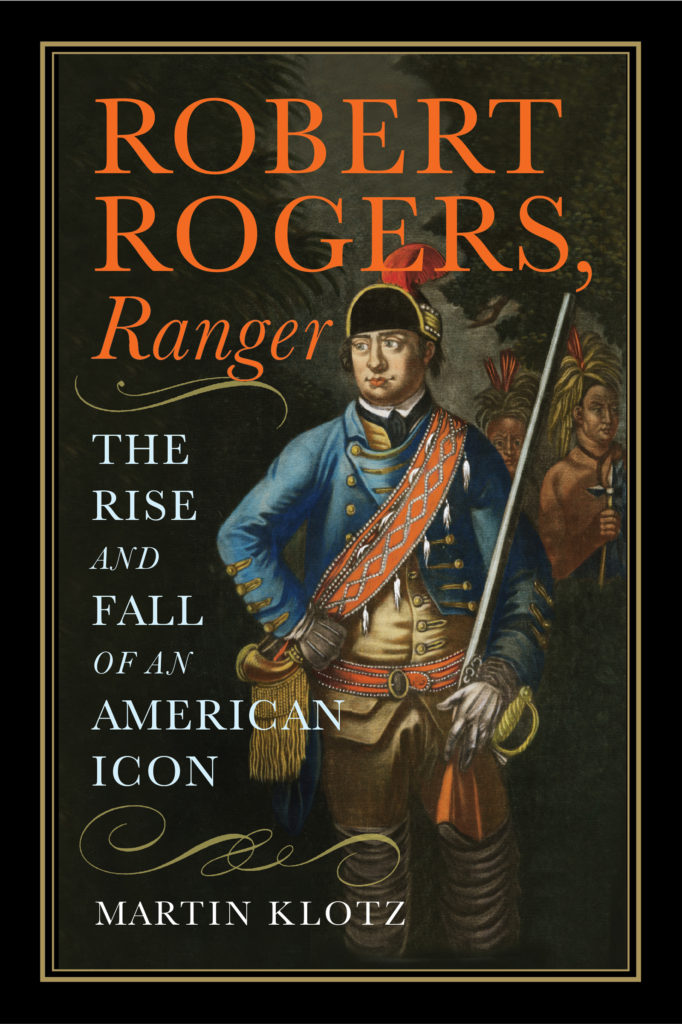

Robert Rogers, Ranger
The Rise and Fall of an American Icon
by Martin Klotz
$32.50 Add to Cart Save 25% on every book by joining our Book Club


by Martin Klotz
Robert Rogers, commander of Rogers’ Rangers during the French and Indian War, was the war’s best-known colonial military hero and, in the ensuing peace, one of the best-known Americans of any description, rivaling Benjamin Franklin in popularity. He was revered in the colonies as an example of the self-made man based on merit, in contrast to the hide-bound, hierarchical British military establishment. Yet this American icon ultimately alienated his peers, fought as a loyalist in the Revolutionary War, ruined himself financially, and died in obscurity in London, estranged from the country of his birth. Rogers is known today for his role in developing the mystique of the modern Ranger, but what explains his meteoric rise and his long, depressing fall?
Robert Rogers, Ranger: The Rise and Fall of an American Icon by Martin Klotz is a fresh look at the life of this famous, yet highly flawed man. Rogers undeniably had great personal strengths. He was brave nearly to the point of fearlessness. He was physically robust, always the one to cover the retreat, carry the wounded, or go for help when no one else could carry on. He was an intrepid explorer who wrote with eloquence about the splendors of the American frontier. He was bold and unconventional, good at thinking outside the box. He was an outstanding scout and intelligence gatherer who provided invaluable service to a British army inexperienced in woodland warfare. At the same time Rogers had enormous weaknesses that undermined his ability to lead effectively. His boldness was never tempered by judgment, and he was prone to grandiose schemes that came to nothing or, worse, to disaster. His constant self-promotion—including embellishing and lying about his battlefield successes—contributed to his popularity but damaged his reputation with peers and superiors. He succumbed to alcoholism and gambling, was profligate, especially with money—his debts were enormous—and routinely skirted the edges of the law. Rogers never found a comfortable place in America. Instead, his aristocratic patrons in London, who knew him mostly from his own self-description, gave him his most valuable opportunities, including commanding an important military and trading center on the colonial frontier and establishing the Queen’s Rangers to fight alongside Crown forces during the Revolution. But when the British cause failed in America, Rogers became an anathema on both sides of the Atlantic. A fascinating inquiry into an eighteenth-century life, Robert Rogers, Ranger presents this American legend as he lived, crossing the line between fame and misfortune.

Martin Klotz, a graduate of Yale College and Yale Law School, served as a federal prosecutor, then, in private practice, represented investment professionals in criminal and regulatory investigations of securities trading. He also devoted substantial time to representing indigent criminal defendants on a pro bono basis. He lives in Brooklyn.
“Robert Rogers is brought vividly to life in this much-needed revisionist biography by Martin Klotz. The author convincingly portrays Rogers as charismatic and brave, vain and undisciplined, profligate and dishonest—an altogether fascinating figure who practically leaps off the page. Fans of colonial and military history will find this a must-read addition to their bookshelves in both genres.”—John Oller, author of The Swamp Fox: How Francis Marion Saved the American Revolution
“If you remember the 1940 Spencer Tracy vehicle Northwest Passage, Robert Rogers was a steely but fair-minded commander who turned uncouth frontiersmen into well-disciplined fighters. The movie doesn’t mention the real Rogers’ penchant for taking scalps of both the Native and French peoples who inhabited the old Northwest, pocketing the bounty money while decrying scalping as a “barbarous custom” of the “savages.” He was, Martin Klotz writes, “a chronic alcoholic whose drinking sapped his judgment,” an abusive husband and absent father, and a toady who kowtowed before his royal superiors, seeking favors. He spent more time in the courtroom than on the battlefield, it seems, from being hauled before the bench to be tried for counterfeiting and court-martialed for war profiteering. He was constantly in debt for “gambling, poor business decisions, and extravagant personal spending.” Having settled on the Loyalist cause before the Revolution, and “willing to sell his services to the highest bidder,” he fled to England during the Revolutionary War, spending his remaining days alternating between pubs and debtors’ prisons. Halfhearted efforts to find the Northwest Passage led to naught, although Klotz does allow that militarily Rogers had a few fine moments, seizing French forts in present-day Michigan and Indiana and escaping an assault by a larger Continental force, an attack motivated by the fact that George Washington “considered the destruction of the Queen’s Rangers an important objective.” Rogers is a largely obscure figure in the annals of the late colonial and revolutionary era, then, for good reason, including his personal shortcomings and “deficiencies as a commander”—hardly the stuff of a movie hero.”—Kirkus Reviews